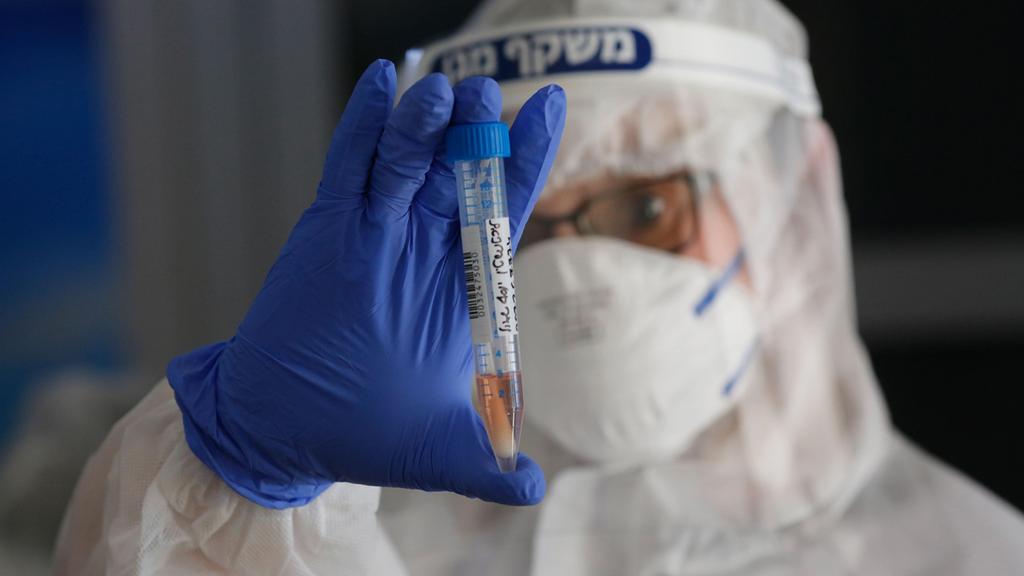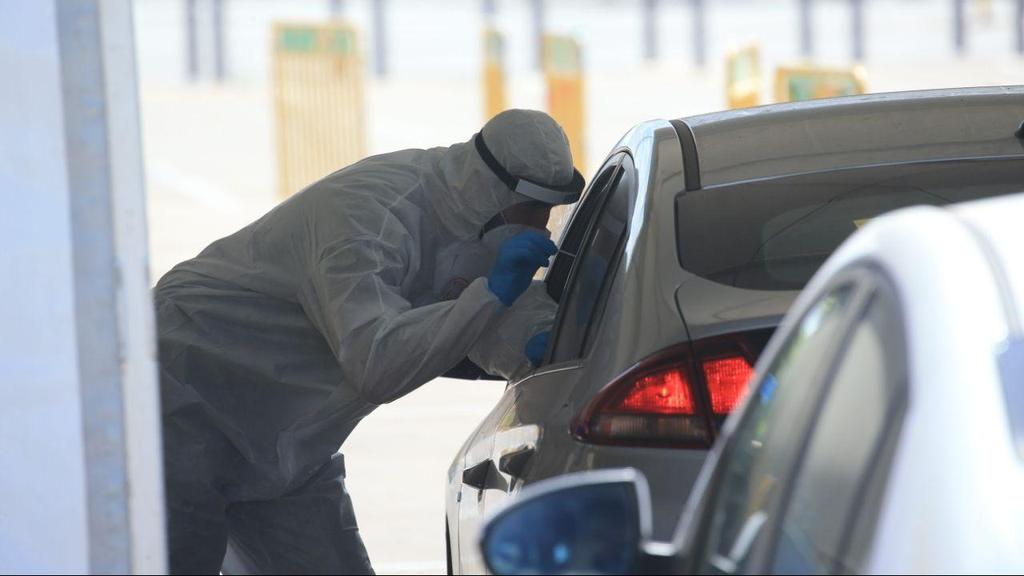Had someone asked me what is the most important asset a responsible leadership should foster when preparing for a crisis, I would have replied "trust."
Trust between the government and the general public, trust between executives and workers, and trust between government agencies.
7 View gallery
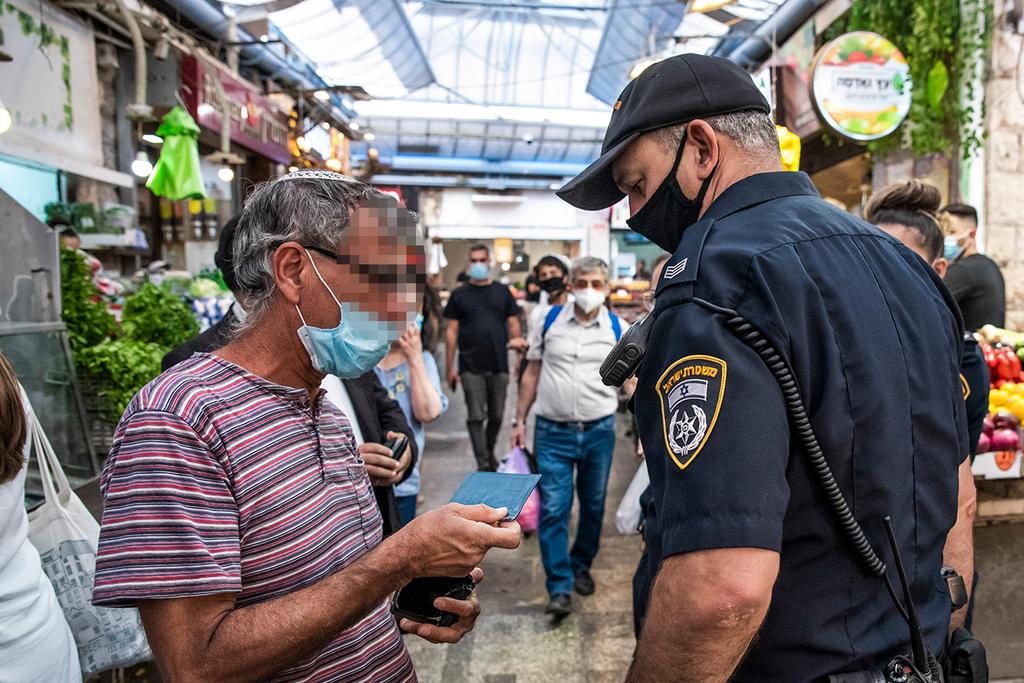

Police officer enforcing social distancing regulations in Jerusalem
(Photo: Shalev Shalom)
Trust pushes people to follow the guidelines over time out of understanding, responsibility, and solidarity - if they make sense.
Trust is the basis on which the country’s medical teams prepare for their life-threatening jobs.
Trust is the foundation on which the collaborative effort of the workers of the education and welfare systems stands at such a time.
"We will have ten thousand dead here," Prime Minister Benjamin Netanyahu said.
"Only those who have symptoms of the disease should get tested," the head of public health services in the Health Ministry Prof. Siegal Sadetzky said.
"Medical teams will protect themselves with a standard surgical mask when treating patients, except for actions involving airborne particles," the ministry's guidelines for medical teams read.
7 View gallery
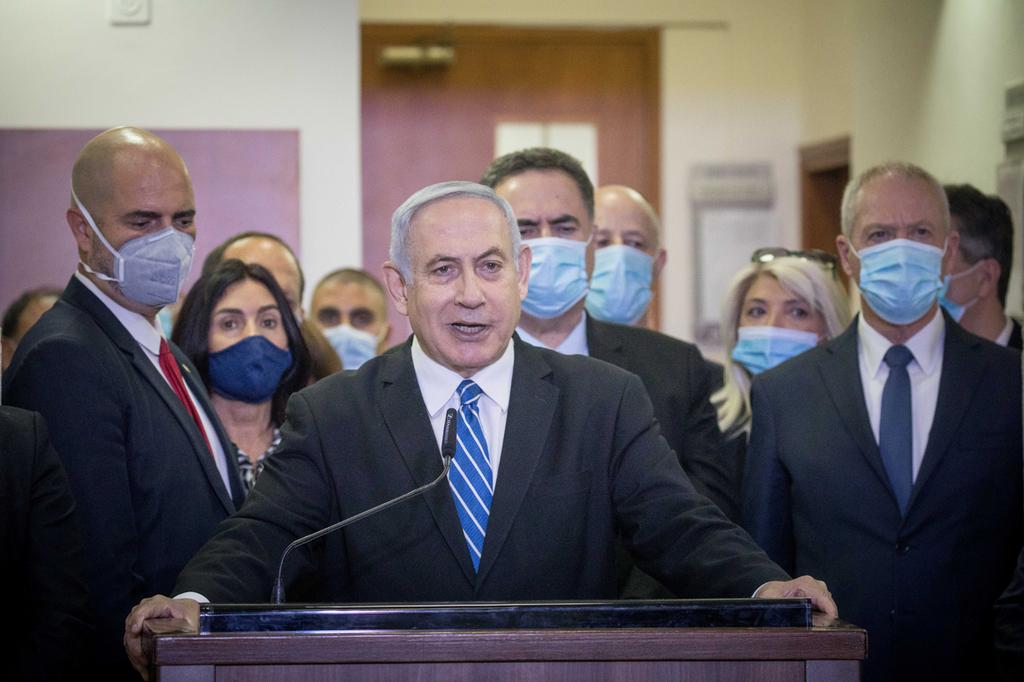

Prime Minister Benjamin Netanyahu at the Jerusalem District Court
(Photo: Jonathan Zindel, Flash 90)
Such far-fetched statements, current and previous, undermine the trust of both the general public and professionals in the country’s decision-makers.
As the author of the first guidelines for a major biological event, I look on with a considerable amount of concern at the government's response to the coronavirus outbreak.
I'm looking at reports saying that Israel's "second wave" is imminent, but can't find Health Ministry data supporting this horror scenario.
I do agree with some practical conclusions like observing the guidelines, but how can one take an unsigned report seriously, when there is not even one public health or infectious disease expert among its authors?
government
Trust is a key component in society's battle against a plague. Trust is built on a transparent, balanced, and logical approach.
How are the people supposed to trust leaders who tell them to wear face masks while they themselves leave their masks hanging around their neck or are caught on camera saying that wearing a mask doesn't actually matter?
We must present the public with the facts: wearing a mask has some value in closed spaces. Out in the open though, where the danger of infection is zero, a mask is not necessary.
So why does the state hand fines for not wearing a mask at the beach or in the park while enforcement in closed places is almost non-existent? It is no wonder people wear masks outside for fear of getting a ticket, and yet remove it once inside, where they are in real danger.
How will we, the public, have any trust in a government, that for at least a decade now, has disregarded and sidelined professionalism and replaced professionals with yes-men - who have the slightest idea how to manage a crisis?
Fear is not a crisis management strategy. Fear is a factor that may superficially and temporarily motivate people but needs refueling or it could lose its effect. Trust and hope, on the other hand, could unite the people in the long run.
7 View gallery
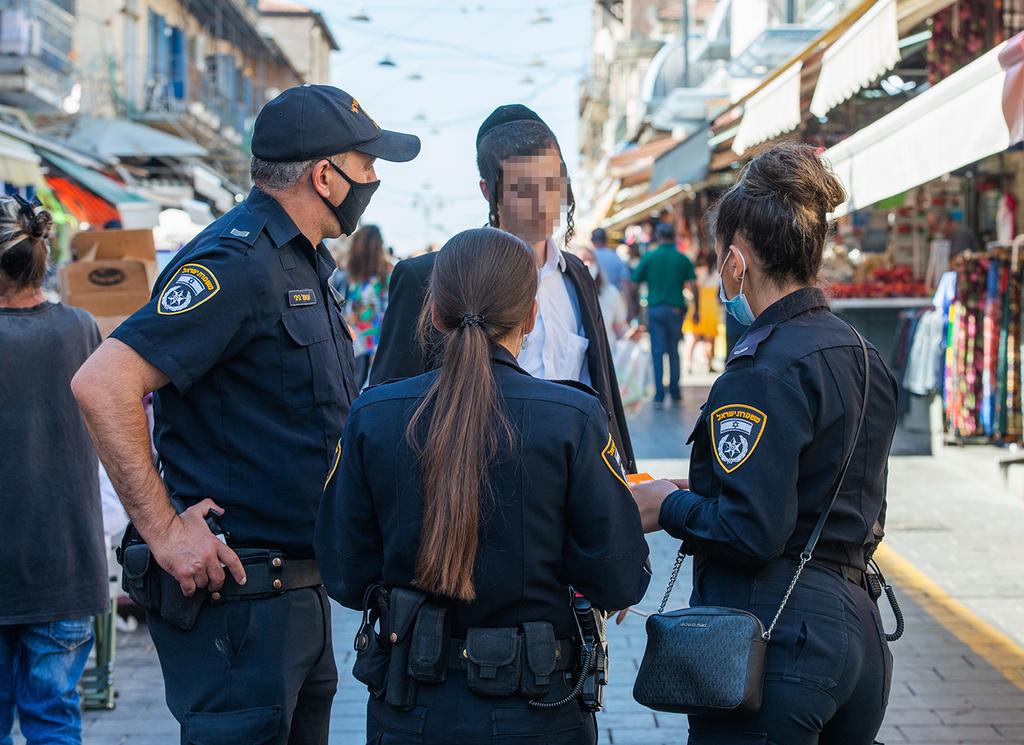

Police officers enforcing social distancing regulations in Jerusalem
(Photo: Shalev Shalom)
How could medical teams have any trust in the Health Ministry , hospitals, and health maintenance organizations (HMOs) that instruct them to wear a surgical mask that only offers partial protection?
We are fortunate that the country’s physicians have realized the importance of improved protection and are now using N95 masks when coming into contact with patients. They have also spontaneously begun offering remote medical services - both these measures have spared us many infections. It is unfortunate though, that to protect themselves properly, they must purchase these masks from their own money.
The Health Ministry issued a report defending the existing policy, but I couldn't find any serious study about infection rates among medical teams in hospitals, on the basis of which the report could support the policy. Some doctors and nurses have required prolonged hospitalization and were even put on ventilators because of this.
As a physician treating patients myself, I would like to see the studies policy-makers rely on before I can have faith in their leadership.
Have we learned anything from the first wave of the coronavirus pandemic? Too little, it seems. We learned that the disease manifests differently in seniors (severe and dangerous illness) and in young people (minor symptoms, if any).
7 View gallery
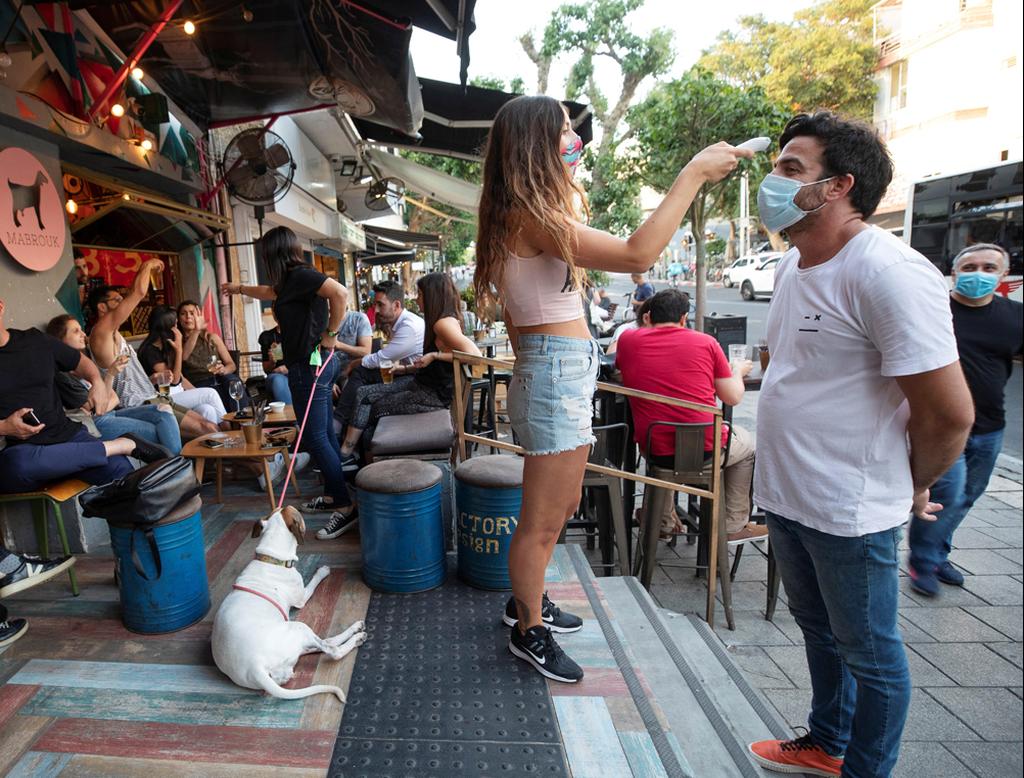

Worker running temperature check on a patron upon entering a bar in Tel Aviv
(Photo: Reuters)
We learned that the virus is highly contagious in its early stages and that it is transmitted through airborne particles and not just through droplets - which explains why infection rates vary in different situations.
These are insights that need to be translated into a plan of action: maximum protection for at-risk populations, improved protection for medical teams, and uncompromising attention to social distancing and mask-wearing in closed spaces.
Along with restrictions, we need to tell the public what options are safe, like outdoor events with limited attendance.
District health doctors - those who know best how to properly conduct an epidemiological investigation - should receive all the reinforcement they need to track down patients and their contacts quickly, isolate them, and stop further infections. It's unclear why an external body should be established instead.
The Health Ministry must publicize the raw data regarding infection rates, with full transparency and on a regular basis - to include more professionals in the discourse.
Incidents of infections in the community should be investigated to draw practical conclusions. Where does the danger of infection reside: Indoors? Outdoors? What types of gatherings? What are effective preventive measures?
Each incident where medical staff is infected needs to be investigated and the lessons should be relayed to the entire healthcare system.
It is time to purchase a sufficient inventory of N95 masks for all medical teams who come in contact with patients. A state that could hold and refresh costly protective kits and gas masks for the entire population for 20 years, could invest in cheap safety masks for a defined population of medical professionals.
Trust is one of a leader's major assets and a key component for the success of the campaign against the virus.
The countries that have succeeded in battling the virus are those that had the most trust in their leaders. Trust is built on transparency, professionalism, and responsible statements, and not on fear.
Trust requires real leadership that understands the current reality. A leadership that examines the situation and acts with genuine care for the public - not with power struggles and egos.
In my opinion, the most important question in managing this crisis is a question of trust. Do we have a leadership that builds trust?
Another question that is being asked these days is, "are we on the verge of a second wave?" The semantics are not important.
There is a certain increase in infection rates, which is to be expected as the economy reopens gradually and people return to their routines.
What matters is not the total number of patients, but the number of severe illnesses and intubated patients. As long as these figures are under control, the situation is good.
There is room for caution, but not for fear. The government must rebuild the public’s trust and the leadership must rebuild trust among professionals.
We must set clear goals for the coronavirus battle and reach them with the help of the public.
One of the major goals would be preventing infections among at-risk populations in order to return to a reasonable and safe routine.
Instead of sowing fear, we must sow hope.
Dr. Yoav Yehezkelli is the medical director of Hasharon district at Maccabi Healthcare Services


